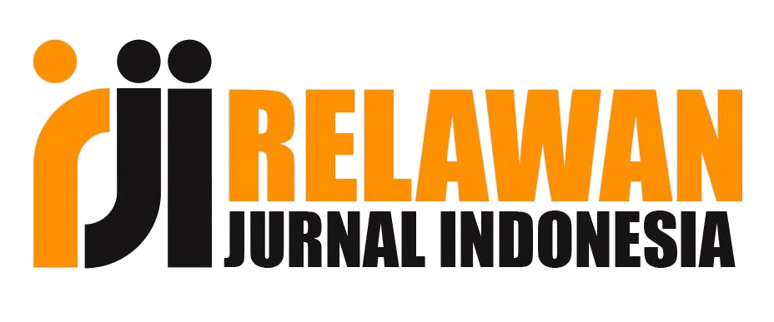The Influence of Social Media Usage on Loyalty with Customer Satisfaction & Brand Trust as Mediation Variable
Abstract
This study aims to determine (1) the effect of social media usage on customer satisfaction on wardah products. (2) The effect of social media usage on Brand Trust on Wardah products. (3) Influence of Customer Satisfaction on Customer Loyalty of Wardah products. (4) The effect of Brand Trust on @wardahbeauty Instagram customer loyalty. (5) The effect of social media usage on Wardah product customer loyalty. (6) The effect of social media usage on customer loyalty mediated by customer satisfaction. (7) The effect of social media usage on customer loyalty with brand trust as media. The population in this study were all followers of Instagram @wardahbeauty and the sample in this study were users of wardah products with a minimum of one purchase. The number of samples in this study were 131 respondents. The data in this study were collected through the distribution of online questionnaires and data processing was carried out using the SmartPLS software. The results of this study indicate that (1) social media usage has a positive and significant effect on customer satisfaction. (2) social media usage has a positive and significant effect on Brand Trust. (3) Customer satisfaction on brand loyalty has a positive and significant influence. (4) Brand Trust has a positive and significant relationship with Customer Loyalty. (5) Social media usage does not have a significant effect on Customer Loyalty.(6) Social media usage has a positive and significant relationship to customer loyalty with customer satisfaction as a mediation.(7) Social media usage has a positive and significant relationship to customer loyalty with brand trust as a mediation.
References
Agnihotri, R., Dingus, R., Hu, M. Y., & Krush, M. T. (2016). Social media: Influencing customer satisfaction in B2B sales. Industrial Marketing Management, 53, 172180.
Ahmed, Z., Rizwan, M., Ahmad, M., & Haq, M. (2014). Effect of brand trust and customer satisfaction on brand loyalty in Bahawalpur.
Aydin, S., zer, G., & Arasil, . (2005). Customer loyalty and the effect of switching costs as a moderator variable. A case in the Turkish mobile phone market. Marketing Intelligence and Planning, 23(1), 89103.
Bowen, J. T., & Chen, S. L. (2001). The relationship between customer loyalty and customer satisfaction. International Journal of Contemporary Hospitality Management, 13(5), 213217.
C. Mowen, John dan Michael Minor. 2002. Perilaku Konsumen. Jakarta : Erlangga.
Chinomona, R. (2016). Brand communication, brand image and brand trust as antecedents of brand loyalty in Gauteng Province of South Africa. African Journal of Economic and Management Studies, 7(1), 124139.
Christian, I. O., Anning-Dorson, T., & Tackie, N. N. (2021). Customer loyalty and value anticipation: does perceived competition matter? African Journal of Economic and Management Studies, 12(2), 321335.
Delafrooz, N., Zendehdel, M., & Fathipoor, M. (2017). The Effect of Social Media on Customer Loyalty and Company Performance of Insurance Industry. International Journal of Economics and Financial Issues, 7(3), 254264.
Deng, Z., Lu, Y., Wei, K. K., & Zhang, J. (2010). Understanding customer satisfaction and loyalty: An empirical study of mobile instant messages in China. International Journal of Information Management, 30(4), 289300.
Gamboa, A. M., & Gonalves, H. M. (2014). Customer loyalty through social networks: Lessons from Zara on Facebook. Business Horizons, 57(6), 709
Hafez, M. (2021). The impact of social media marketing activities on brand equity in the banking sector in Bangladesh: the mediating role of brand love and brand trust. International Journal of Bank Marketing.
Hair, J. F., Black, W. C., Babin, B. J., Anderson, R. E., Black, W. C., & Anderson, R. E. (2018). Multivariate Data Analysis.
Hanaysha, J. R. (2017). Impact of Social Media Marketing, Price Promotion, and Corporate Social Responsibility on Customer Satisfaction. Jindal Journal of Business Research, 6(2), 132145.
Islam, T., Islam, R., Pitafi, A. H., Xiaobei, L., Rehmani, M., Irfan, M., & Mubarak, M. S. (2021). The impact of corporate social responsibility on customer loyalty: The mediating role of corporate reputation, customer satisfaction, and trust. In Sustainable Production and Consumption (Vol. 25, Issue July). Elsevier B.V.
Kotler dan Keller. (2012), Manajemen Pemasaran, Edisi 12. Jakarta : Erlangga
Miranda, S., & Lubis, E. E. (2017). Pengaruh instagram sebagai media online shopping fashion terhadap perilaku konsumtif mahasiswi Fakultas Ilmu Sosial Dan Ilmu Politik Universitas Riau (Doctoral dissertation, Riau University).Mursid, A., & Wu, C. H. J. (2021). Customer participation, value co-creation and customer loyalty: evidence from Umrah travel agencies in Indonesia. Journal of Islamic Marketing.
Mohd-Any, A. A., Mutum, D. S., Ghazali, E. M., & Mohamed-Zulkifli, L. (2019). To fly or not to fly? An empirical study of trust, post-recovery satisfaction and loyalty of Malaysia Airlines passengers. Journal of Service Theory and Practice, 29(56), 661690.
Mursid, A., & Wu, C. H. J. (2021). Customer participation, value co-creation and customer loyalty: evidence from Umrah travel agencies in Indonesia. Journal of Islamic Marketing.
Nayebpour, H., & Bokaei, M. N. (2019). Customers satisfaction by fuzzy synthetic evaluation and genetic algorithm (case study): Travel websites in Iran. EuroMed Journal of Business, 14(1), 3146.
Nunkoo, R., Teeroovengadum, V., Thomas, P., & Leonard, L. (2017). Integrating service quality as a second-order factor in a customer satisfaction and loyalty model. International Journal of Contemporary Hospitality Management, 29(12), 29783005.
Odoom, R., Anning-Dorson, T., & Acheampong, G. (2017). Antecedents of social media usage and performance benefits in small- and medium-sized enterprises (SMEs). Journal of Enterprise Information Management, 30(3), 383399.
Orzan, G. (2016). Professor Gheorghe ORZAN , PhD The Bucharest University of Economic Studies Teaching Assistant Otilia-Elena PLATON , PhD Nicolae Titulescu University of Bucharest E-mail : otiliapl@yahoo.com Col . Cristian Dragos S TEF?NESCU , PhD Carol Davila Univers. , Economic Computation Economic CyberneticsStudies, 50(1), 141157.
Rather, R. A., & Hollebeek, L. D. (2019). Exploring and validating social identification and social exchange-based drivers of hospitality customer loyalty. International Journal of Contemporary Hospitality Management, 31(3), 14321451.
Raza, A., Rather, R. A., Iqbal, M. K., & Bhutta, U. S. (2020). An assessment of corporate social responsibility on customer company identification and loyalty in banking industry: a PLS-SEM analysis. Management Research Review, 43(11), 13371370.
?ahin, A., Zehir, C., & Kitapi, H. (2011). The effects of brand experiences, trust and satisfaction on building brand loyalty; an empirical research on global brands. Procedia - Social and Behavioral Sciences, 24, 12881301.
Sharifi, S. S., & Esfidani, M. R. (2014). The impacts of relationship marketing on cognitive dissonance, satisfaction, and loyalty: The mediating role of trust and cognitive dissonance. International Journal of Retail and Distribution Management, 42(6), 553575.
Singh, G., Slack, N., Sharma, S., Mudaliar, K., Narayan, S., Kaur, R., & Sharma, K. U. (2021). Antecedents involved in developing fast-food restaurant customer loyalty. TQM Journal.
Sofyani, H., & Umy, P. A. (2019). Modul Praktik Partial Least Square ( PLS ).
Sugiyono. (2012). Metode Penelitian Kuantitatif, Kualitatif, dan Tindakan.
Wang, C. Y., & Wu, L. W. (2012). Customer loyalty and the role of relationship length. Managing Service Quality, 22(1), 5874.
Yadav, M., & Rahman, Z. (2018). The influence of social media marketing activities on customer loyalty. Benchmarking: An International Journal, 25(9), 38823905.
Zhang, C. B., & Li, Y. (2019). How social media usage influences B2B customer loyalty: roles of trust and purchase risk. Journal of Business and Industrial Marketing, 34(7), 14201433.
Copyright (c) 2022 Meisyitah Dwi Nugraha, Vidyarini Dwita

This work is licensed under a Creative Commons Attribution 4.0 International License.












